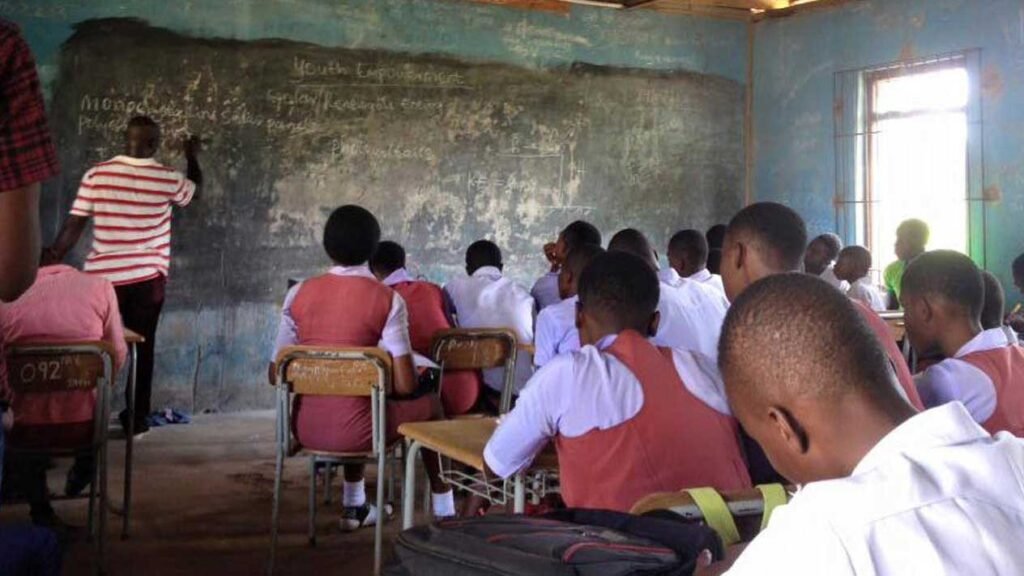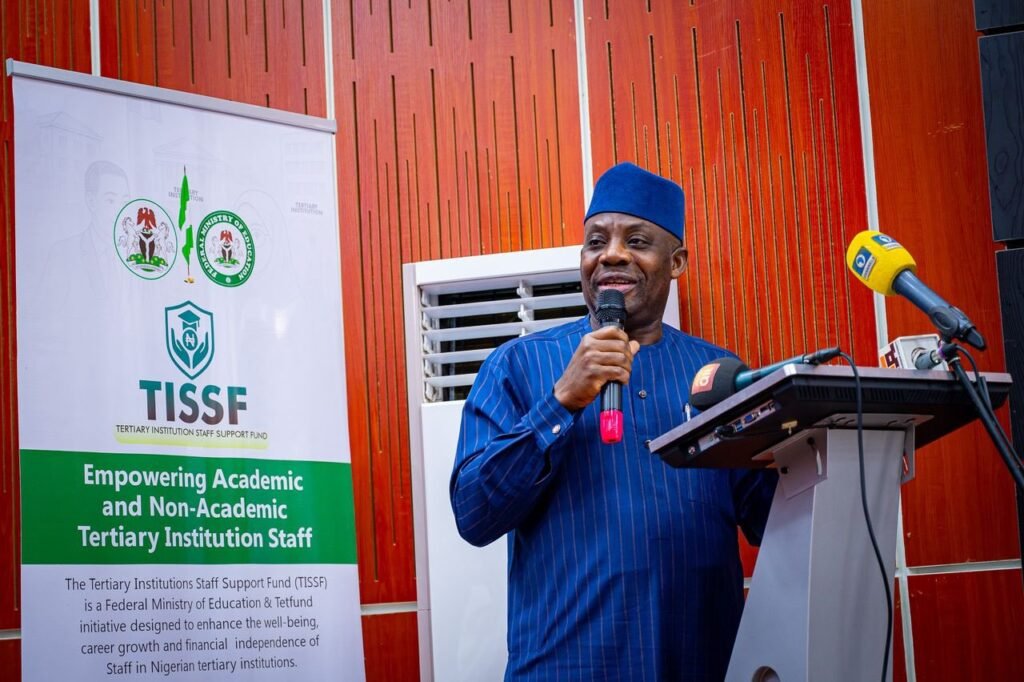Nigeria stands at a crossroads. The recent policy decision to make mathematics optional for students seeking admission into arts and humanities courses might appear friendly on the surface — an attempt to ease academic load and widen access. But if we scratch beyond the rhetoric, what we discover is a dangerous precedent. In a nation already grappling with poor numeracy, weak analytical skills, and widening inequality, sidelining mathematics may prove to be a mistake we cannot afford.
At the heart of this debate lies a tension between inclusion and rigor. The Federal Ministry of Education argues that scrapping the mathematics requirement will remove a “barrier” for many students who struggle with the subject, thereby expanding tertiary admission possibilities. But opening the doors is one thing — having the strength to walk through them is another. If students are admitted unprepared to think clearly, reason deeply, or tackle complexity, then the very foundation of higher education is weakened.
Mathematics is not an arcane pursuit reserved for quant-geeks alone. It is the language of structure, logic, measurement, and pattern. It trains the mind to see relationships, to generalise, to observe consistency — skills that matter in literature, music, journalism, architecture and public policy. To disassociate mathematics from “soft” fields is to undermine their coherence, their intellectual muscle. If an arts student cannot interpret statistics, negotiate percentages, read data trends, or understand metrics, then how do they meaningfully engage with a modern world defined by numbers?
Over the years, Nigeria’s crisis in education has been predictable. Students do poorly in core numeracy assessments, yet the impulse is to drop expectations rather than to raise standards. The reaction is to loosen requirements, but we should instead be remedying the root causes — outdated curricula, poorly trained teachers, lack of pedagogical innovation, inadequate resources, and a culture that views mathematics as a hurdle instead of a tool. To quote the old adage: there are no hard subjects — only bad teaching.

Table of Contents
The Global Contrast: Progress through Integration, Not Exclusion
If Nigeria wants to reclaim intellectual footing, it must look to countries that have advanced by weaving mathematics into creative and narrative disciplines rather than isolating it. Take Finland, Singapore, South Korea, and many high-performing education systems: they teach mathematical thinking even within broader subject areas. They train students to see connections, to reason across domains, to apply logic in art, philosophy, science, and social studies alike.
In Singapore, for instance, mathematics is central to the programme of studies across grades, and literacy in reasoning is considered foundational, regardless of your career path. In Finland, integration between STEM and the humanities encourages students to view knowledge as interconnected, not compartmentalised. These systems recognise that abstract reasoning, pattern recognition, and formal logic sharpen the mind.
Nigeria, by contrast, is flirting with the idea that creativity and analysis live apart. But they have always coexisted. Leonardo da Vinci was as much mathematician as artist. Architecture, music, economics, media analytics, policy analysis — all are rooted in math, even when it’s invisible. For a writer interpreting survey data, for a musician understanding rhythmic ratios or profit-share models, for a visual artist trying to scale composition, mathematics is the silent companion.
When education policy suggests that one can meaningfully pursue arts without quantitative reasoning, it creates a false dichotomy. It suggests that narrative is enough, that structure is optional, that coherence can be intuitive alone. The consequence? A generation less prepared to engage with a world increasingly shaped by data, metrics, modelling, and measurement.

Consequences Nigeria Can’t Ignore
The implications of this policy shift are profound — and likely damaging over time. Among the main concerns:
- Diminished analytical capacity
Employers already lament graduates who can speak but cannot reason. Many struggle to interpret graphs, spot trends, or solve open-ended problems. These are not failures of intellect, but of structure. Removing mathematics deprives students of the scaffold to think clearly, to sequence arguments, to assess evidence. A society that does not teach its citizens how to think quantitatively risks breeding superficiality. - Worsening inequality
Privileged families will continue to invest in private math coaching. Their children will retain the edge in reasoning, logic, and numeracy. Meanwhile, less privileged students — told they don’t need mathematics — will fall further behind. Over time, the disparity will not be only economic but intellectual. - Decline in global competitiveness
The global economy rewards data literacy, quantitative reasoning, and analytical skills. UNESCO and the World Economic Forum identify numeracy, critical thinking, and data interpretation among the top skills employers demand. Graduates who cannot engage with those skills will be left behind — not just as individuals but as a nation. - Crumbling academic integrity
Admission is not education. Letting students into universities without the tools to reason might inflate enrollment figures, but what about outcomes? Such students may struggle to keep pace, produce weak scholarship, and underperform in advanced courses. The “open gate” becomes a revolving door. - Weakening the intellectual core of arts and humanities
To remove mathematics from arts and humanities is to dilute their intellectual heft. Those disciplines are enriched when scholars can analyse data, interrogate social metrics, propose sound models, or craft arguments grounded in evidence. Disabling that dimension impoverishes the disciplines.
Reframing the Path Forward
It is not too late to course-correct. The government, educators, civil society, teachers, employers, parents, and students must come together to rescue reasoned thinking from the brink of omission. Here’s how:
- Reinvest in teaching quality
The problem is not mathematics per se, but how it is taught. Nigeria must prioritise training teachers, modernising pedagogy, using relatable examples, grounding math in students’ lived realities. Make it visual, empirical, applied, story-driven — not dry formula recitation. Let mathematics breathe. - Modernise curriculum design
Instead of abstract, disconnected content, align mathematics teaching with real-world problems and cross-disciplinary themes. Show students how math speaks to economics, to social science, to media, to everyday decisions. - Facilitate remediation and support
Offer extra tutoring, peer mentoring, learning labs, remedial classes. Lift students up rather than remove expectations. - Institute phased reform, not radical removal
Instead of outright elimination, adopt a transition plan. Keep mathematics compulsory, but provide multiple pathways and supportive scaffolds for struggling students. Monitor performance, consult stakeholders, pilot alternatives rather than wholesale removal. - Foster stakeholder dialogue
Engage teachers, students, parents, educationalists, employers, ombudsmen. Let the decision be data-driven, inclusive, transparent, iterative. - Retain standards while expanding access
Inclusion must not mean dumbing down. Nigeria must aim for both breadth and depth — more students granted access and able to think, analyse, build, critique.

Conclusion
Nigeria cannot afford to give up mathematics. To do so is to volunteer a slow erosion of reasoning, a stealth weakening of intellect, and a surrender of competitiveness. Policy should not yield to short-term applause; it must sustain long-term strength.
The call now is clear: scrap the proposal before damage is done. Reaffirm mathematics as a core pillar of Nigerian education — even in the arts. Deliver better teaching, better tools, smarter curriculum, better support. Because every nation that sidelined its ability to think quantitatively eventually watched its innovation, discourse, and leadership fade. We must not let that be Nigeria’s fate.
Join Our Social Media Channels:
WhatsApp: NaijaEyes
Facebook: NaijaEyes
Twitter: NaijaEyes
Instagram: NaijaEyes
TikTok: NaijaEyes
READ THE LATEST EDUCATION NEWS





